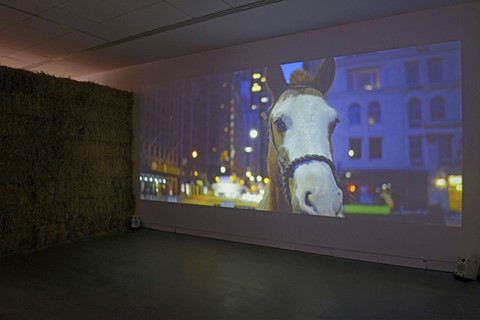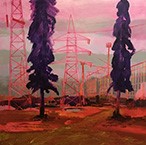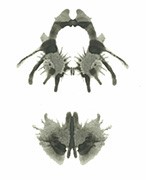Our four interdisciplinary research themes complement School-based disciplinary research and build on existing strengths to consolidate learning across GSA, support the cross-fertilisation of knowledge and generate opportunities for new strategic partnerships. Each theme is underpinned by an evidence base of high-quality research, external funding and a critical mass of researchers and PGRs - and all are aligned with relevant United Nations Sustainable Development Goals.
Sustainable Environment and Economies
Researchers across GSA are exploring the role of our creative disciplines in shaping more sustainable futures. This includes MEARU’s extensive track record of research and knowledge exchange in the field of low energy building design and performance, much of which is undertaken in partnership with architecture practices, housing providers and policymakers. Also within the Mackintosh School of Architecture, the Glasgow Urban Lab (in partnership with Glasgow City Council) addresses the ecological, social and economic dimensions of urbanism and placemaking, including through Professor Brian Evans’s work to support the United Nations Economic Commission for Europe (UNECE). Other research within this theme includes the School of Simulation and Visualisation’s role as a partner in the One Ocean Hub initiative, the Innovation School’s research on creative economies in our cities and in the Scottish islands, and work that interrogates social justice issues and inequalities.
Cultural Landscape and Identity
Responding to our personal and cultural relationships to place, this theme encompasses a range of distinctive, individual research methodologies in which creative practice plays a central role. It embraces the Reading Landscape group based in the School of Fine Art, and also includes a body of research positioned at the intersection of this field and Sustainable Environment and Economies (see above). Questions around contested social and political landscapes, migration, human displacement and explorations of self are also addressed in this theme.
History, Heritage, Archives and Collections
Research within this theme draws extensively on archives and collections (including GSA’s own) to unlock new knowledge on diverse subjects, from Scotland’s textile design heritage to feminist perspectives on museum collections. Our research community’s work in this field also includes the collaborative conservation of archaeological heritage assets, and individually led explorations of public heritage ranging in focus from architectural taxonomies and historic monuments to street furniture and shipbuilding. Strategic scholarly networks and partnerships have been vital enablers to GSA’s contribution to this field.
Health and Care
GSA’s research in health and care is characterised by an interdisciplinary team-based approach, deploying co-design methods in clinical and community settings and focusing on the user experience (patient, carer, clinician) throughout the healthcare ecosystem. This includes the Innovation School’s key role in the Digital Health & Care Innovation Centre (in partnership with University of Strathclyde, and supported by the Scottish Government and Scottish Funding Council) and a number of related projects which are summarised at futurehealthandwellbeing.org. In 2018, Professor Alastair Macdonald in the School of Design received an AHRC/Wellcome Health Humanities Award, in the ‘best research’ category, for his work in this field, including a series of AHRC-funded projects exploring the role of design in addressing hospital acquired infections and antimicrobial resistance. In the field of Medical Visualisation, the School of Simulation and Visualisation developed the pioneering Definitive Human, a highly accurate, 3D, digital, interactive model of the entire human anatomy with extended reality interfaces.
These four, core research themes are complemented by the excellent research and knowledge exchange undertaken by staff in all of our Schools on a wide range of other topics, and we regularly review developments within our research community to identify potential new and emerging thematic priorities.



